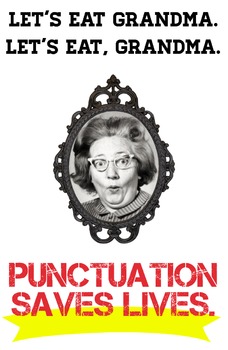Take structure for example. From a young age we are told that paragraphs are a minimum of so many sentences long, and that those sentences must include (at the very least) an introduction/thesis, a statement or point to be made backing up the thesis, some proof of that statement, and then a conclusion sentence. Boa constrictor. From that very moment, we have taken our writing and shrunk it down to a specific structure that we are expected to adhere to, and creativity is therefore cut off. We have a hard time taking our writing further, and making it better, because we tell ourselves that the structure that we want to write with does not follow the structure we are supposed to be using. Additionally, if we do not explore with different structures, we cut off an entire audience or level of understanding that someone could come to. If we do not entirely adhere to all of the rules of structure, we might just be able to reach a different audience or allow our current audience to come to a new understanding of the text. That seems to be exactly Bernhardt's point-- "If we were to encourage students to experiment with visible features of written texts, we would increase their ability to understand and use hierarchical and classificatory arrangements. Because of the opportunities it offers for visual inspection, writing heightens awareness of categories and divisions, changing the ways people conceive classificatory relations" (Bernhardt, 66).
Now let's look at media and genre. When we define genre, we say that certain types of writing are done within that genre, and those types of writing are done a certain way, and that that certain way of writing is used to talk about these certain types of topics. Boa constrictor. From the moment we define a genre, or a piece of media, we cut off anything that falls outside of that definition and we discount its worth within the genre. And another problem we create here is that we say that only certain types of literature fit within the terms "writing" and "literature." Something I've been exploring in LIT438 is that literature is not just works of written words that have been compiled into pages upon pages of written words to tell some sort of story or give some sort of information, but rather, it can be anything that tells a story--including movies, music, and comics. It seems that Kress is also making this point. We tend to restrain what can and cannot be a certain genre, or what applies to a certain media--when in reality, so many more things than what fit within our "definitions" can actually go within that genre or media if we'd only open our minds to it.
Grammar is another thing that is rigid in rules.
"Don't say, 'Me and Amanda.' It's improper. Say, 'Amanda and I.'"
"Ain't isn't a word."
Girl on internet
-- "Your so cute!"
Grammar Nazi
-- "*you're"
(A side note on Grammar Nazis, you should just go to Google images for a grammar giggle!)
What they told me in my younger years
--"In a list there should be a comma between every word."
What they tell me now
-- "Actually, the Oxford comma isn't necessary."
Me
-- "WELL SHIT!"
I could go on and on. There are so many grammar and punctuation rules. I get it, I am actually one of those people who thinks you're pretty idiotic if you can't get simple grammar and punctuation correct. I know that it's important and I am a stickler on it. But I repeat. BOA CONSTRICTOR. Punctuation has the power to absolutely transform a sentence, and the proper use of it can literally change the meaning of a sentence
 -- Let's eat Grandma.
-- Let's eat Grandma.-- Let's eat, Grandma.
Those two sentences have very different meanings, and the proper use of a comma clears up the true meaning of the sentence (and save's Grandma from getting eaten). But like all of the other things in this post, when we put a constraint on how something is supposed to be used we cut ourselves off from a vast possibility of different things to say and ways to say them.
Now, I'm not saying that all rules should be thrown out the window, and that we should just have a free for all and write however we damn well please. I am simply saying that sometimes, if we push the boundaries that we have set for ourselves, or even break the molds that have been set before us, we have the potential to really expand our writing in new and amazing ways.

First off, I love how you tied the readings to a boa constrictor (and I think your photo is perfect for your post). I find it funny how you focused on how the readings discussed constraints in our writing and I focused on how the readings offered writers a chance to be really creative with different design elements. If I didn’t know better I would say we read completely different things, but it just goes to show how different things capture the attention of different readers. I also love that we used part of the same quote of Bernhardt’s. I can see you point of view, after all rules are a substantial part of writing. I think rules in writing are good for people just learning to write, but since my college classes have mainly focused on learning how to break out of those rules something must not be right. Why do we spend so many years learning rules of writing if college just wants us to ignore them? In some cases, like your “Let’s eat Grandma” example, some things can completely change the meaning of a sentence. In other cases, like the Oxford comma, it is left to personal preference.
ReplyDelete